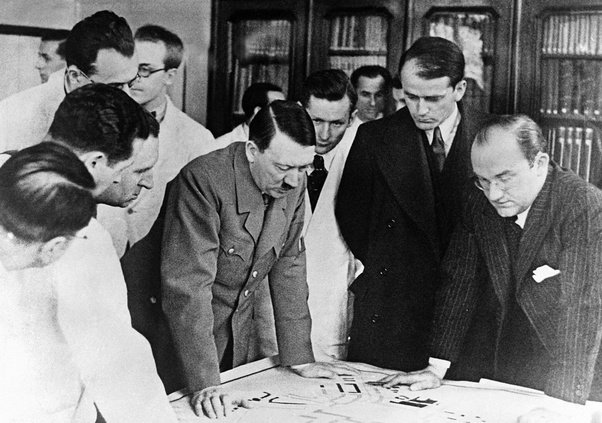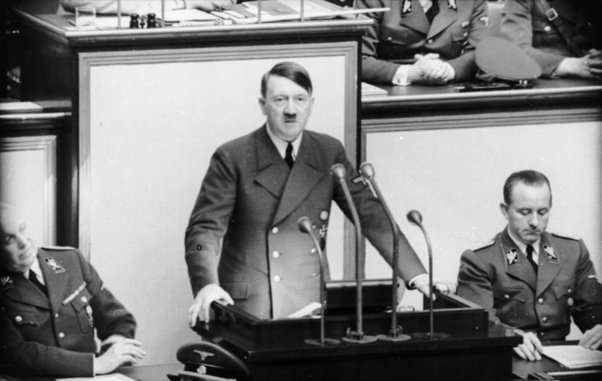Mostly, socially at least, he was boring. Hours-long monologues on the same old subjects night after night, his guests were bored to tears. But not fearful. He was capable of being polite and charming and, unusually for a dictator, didn’t make subordinates disappear, unlike, say, Stalin or Mao. He was kind to his secretaries and remembered their birthdays. He liked animals, dogs especially. Under Göring’s aegis and with Hitler’s blessing the Nazis banned vivisection.
Few men knew Hitler as well as architect and long-term associate Albert Speer. In his writings, later in life, Speer frequently dove into the late dictator’s psyche, sharing stories of their times. Speer wrote well, and his anecdotes and analysis of the highest-ranking Nazis are fascinating. He would often recall how Hitler would be most at ease when meeting with common people. The “little people”, if you will.

Say Hitler was early for a meeting, back in the first years when he had just come to power. He’d stroll around a building where a stage was set up. And he’d talk to people. Like really talk to them, person-to-person. A soldier, a fellow veteran of WWI. A carpenter. He’d have animated talks with them, and Speer was amazed by this because many of the top brass of German high society were vain, arrogant, high, and mighty figures. Not Hitler. In a restaurant, he’d compliment the chef on a vegetarian dish. Delighted to find out the man who prepared his food was a fellow Austrian. Things like that.
You’d think of Hitler, the murderous dictator, and imagine some sort of raving madman, foaming at the mouth, endlessly ranting about “the Jews!” And what you got, instead, was a thoughtful, soft-spoken man with a deep voice, speaking slowly and deliberately, trying to hide his heavy Austrian accent. He’d remember names, remember intimate details about the lives of people he’d only met once, years after the fact. Like a true politician, really. He was warm and personable. And he could also be terrible, too. Especially to people who belonged to nobility, the Prussian elites, and generals from “old families”, with old money and “von” in their names.
The high and mighty men of old Weimar never wanted much to do with Hitler. That “silly little corporal” they would say. They despised him, at worst. At best, saw him as a mere parvenu. Someone who had risen far beyond his natural station in life, and who was utterly undeserving of his position. He never was accepted by ‘polite society’ to the degree he wished he would be. And not for lack of trying… he could engage with them, and talk to them passionately about a wide variety of subjects. He frequently tried to woo “old money” but was frequently rebuffed. It tired him. Made him bitter. So the niceness, faded. He did not need it anymore, anyway, once absolute power was obtained.
